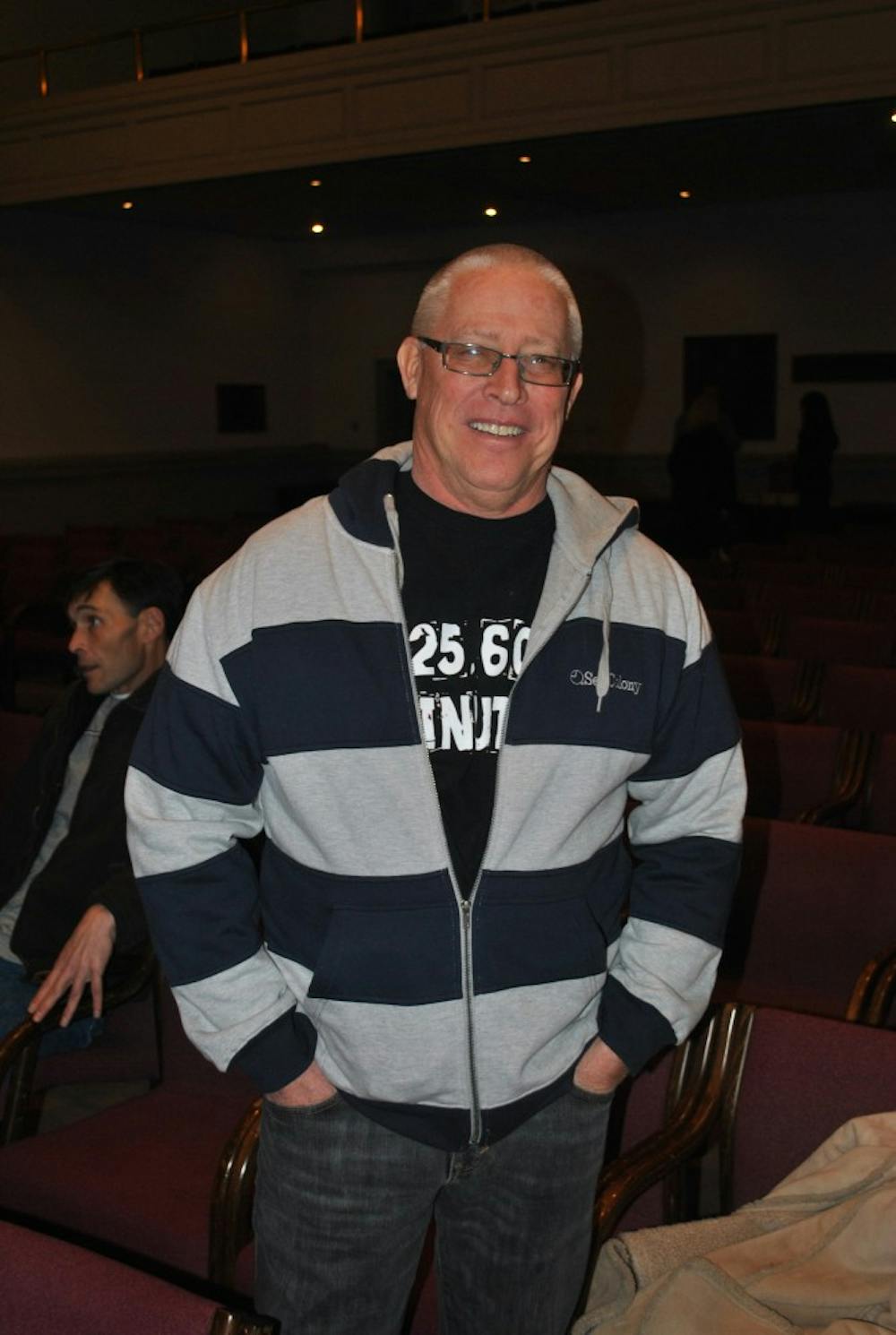An award-winning journalist shared her experience covering a controversial trial surrounding the debate of promoting religion in public schools.
Lauri Lebo spoke in Old Main last Thursday for Shippensburg University’s 7th annual Science and Religion Forum.
Her presentation, “Ten Years Later, Looking Back on Kitzmiller v. Dover: How Have Attacks on Science Education and the First Amendment Evolved Since Intelligent Design,” gave a brief summary of the controversial Dover “Panda” Trial in Dover, Pennsylvania.
Lebo, principle local reporter in the case, explained that the trial was a landmark in deciding whether intelligent design should be taught in the public school system.
The case arose in 2004, after the Dover Area School District altered its biology curriculum to teach intelligent design as a viable alternative to evolutionary theory.
After the change, the new biology curriculum offered this disclaimer to students: “Because Darwin’s theory is a theory, it continues to be tested as new evidence is discovered. The Theory of Evolution, while technically not a fact, is the most widely accepted amongst the scientific community…. Intelligent Design is an explanation of the origin of life that differs from Darwin’s view… The school leaves the discussion of the origins of life to individual students and their families.”
One out of 10 teachers in the school district stood behind the disclaimer and the district began using a new textbook, “Of Pandas and People,” alongside textbooks based on evolutionary theory.
Eleven outraged parents of students in the district sued, demanding that the schools stop teaching their children intelligent design. They argued that intelligent design was only thinly veiled, Christian creationism and that the state was violating their constitutional rights by using a public school to teach religion.
After a highly publicized month long trial, Judge John E. Jones III came to a decision: teaching intelligent design violates Pennsylvania constitutional rights, because intelligent design “cannot uncouple itself from its creationist and, thus, religious antecedents.”
Steve Stough, a plaintiff in the Dover case and father of a seventh-grader in the district, was in the audience for Lebo’s presentation.
Stough became outraged in 2004 when the school board decided to include a disclaimer that intelligent design was a viable theory.
“I talked to my daughter about it first, and then I called the ACLU (American Civil Liberties Union) and told them that my daughter is a student at Dover and that that my rights as a parent and my daughter’s rights are being violated,” Stough said.
Cynthia Sneath, one of the 11 plaintiffs in the case, was also in the audience.
At the end of her presentation, Lebo mentioned that part of the case involved trying to expose the school board members as closeted creationists. “I think everyone knows the end of this story: intelligent design was shown to be just revamped creationism, and the school board members were shown to be lying about their religious motivations,” Lebo said.
In 2009, Lebo finished her book, “The Devil in Dover: An Insider’s Story of Dogma V. Darwin in Small-town America.”
CORRECTION:
The Feb. 17 edition of The Slate ran a version of this article that said, "Intelligent Design is a religious explanation…" The correction is, "Intelligent Design is an explanation…". The Slate staff apologizes for the error.




The Slate welcomes thoughtful discussion on all of our stories, but please keep comments civil and on-topic. Read our full guidelines here.